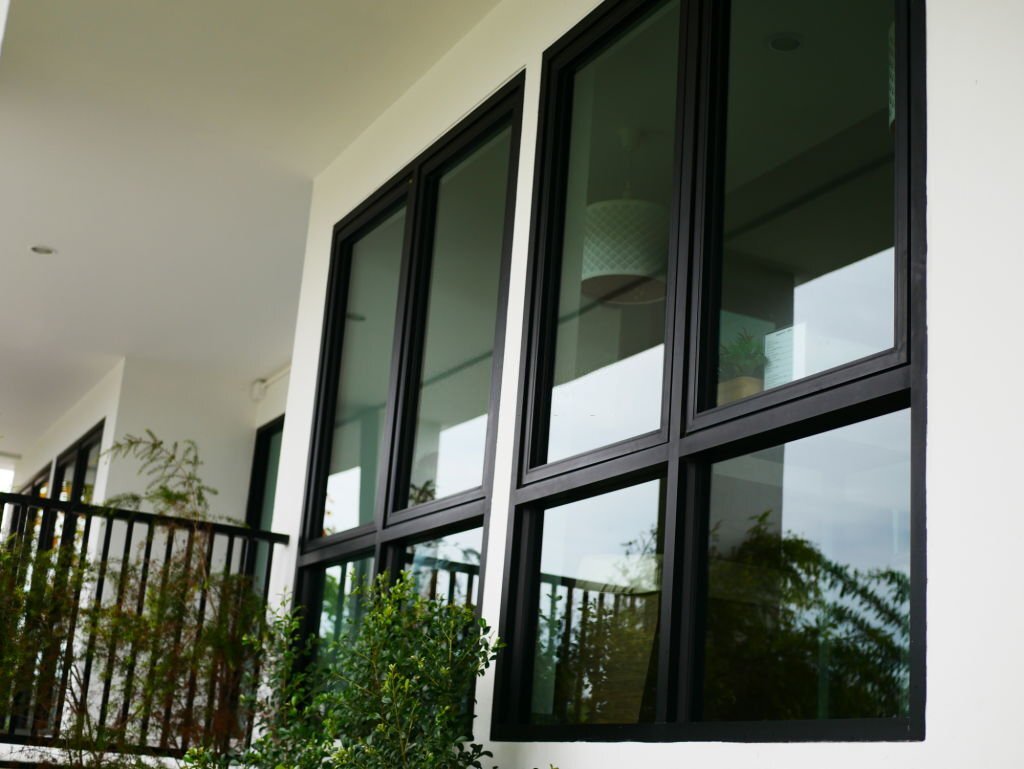Residential Window Tint: Shield Your Furnishings from UV Damages
Residential Window Tint: Shield Your Furnishings from UV Damages
Blog Article
Exactly How Residential Window Tinting Boosts Your Home's Energy Performance
Residential home window tinting provides an engaging solution for home owners looking for to enhance energy performance within their living spaces. By using specialized films to windows, it successfully lowers warmth transfer, thereby maintaining indoor temperatures and reducing the requirement for extreme heating or cooling.
Recognizing Home Window Tinting
Understanding window tinting is essential for home owners seeking to enhance both comfort and energy effectiveness in their home. Residential Window Tint. Window tinting includes the application of a slim film to the inside or exterior surface of glass home windows. This film can significantly regulate the amount of sunlight and heat that gets in a home, thus affecting interior climate conditions
There are various sorts of home window tinting films available, each with distinctive residential properties. Dyed films absorb solar power, while reflective films disperse it away from the glass surface area. Ceramic films provide an equilibrium of visibility and warm denial, making them a preferred choice amongst property owners. The performance of window tinting is commonly gauged by its Visible Light Transmission (VLT) percent, which suggests just how much light can travel through the film.
Advantages of Energy Efficiency
Window tinting not only enhances aesthetics however likewise plays a substantial role in improving energy effectiveness within property spaces. By minimizing heat transfer through windows, colored movies create an extra secure interior environment, which can result in considerable decreases in power intake for heating and air conditioning. This power performance equates into lower energy expenses, giving homeowners with significant lasting financial savings.

Furthermore, window tinting improves the convenience of living rooms. By lessening glow and blocking damaging UV rays, colored windows produce a more pleasurable atmosphere, which can cause boosted health for occupants. The defense against UV rays also aids preserve furniture and floor covering from fading, contributing to the long life of household items.
Exactly How Tinting Works
Tinting films operate via a combination of innovative products and modern technologies created to control the amount of solar power getting in a home. Largely composed of polyester, these films usually include metallic or ceramic bits that soak up and reflect warmth. This twin capacity allows them to substantially reduce the penetration of ultraviolet (UV) rays and infrared radiation while allowing visible light to travel through.
The effectiveness of Visit This Link home window tinting is determined by its solar warm gain coefficient (SHGC), which suggests how much solar energy is sent via the home window. Lower SHGC worths are more effective as they signify greater heat denial. Additionally, window tints can feature a range of shades, allowing home owners to customize their visual preferences while boosting energy effectiveness.
Furthermore, these films act as an obstacle, stopping warmth loss during colder months by reflecting indoor warmth back right into the living room. This thermal insulation result enhances the cooling advantages acquired during warmer months, contributing to a balanced interior climate year-round. By taking care of solar power properly, residential home window tinting not just improves convenience however also plays an essential function in decreasing power intake and reducing utility expenses.
Choosing the Right Tint

There are numerous kinds of window movies readily available, including colored, metalized, and ceramic. Ceramic films give exceptional warmth control without compromising visibility and are highly resilient, making them a popular choice.
Noticeable light visit this page transmission (VLT) is an additional vital element, as it indicates the quantity of all-natural light that can travel through the tinted glass. Property owners should choose a color with a VLT that complements their lights choices while still offering ample glare reduction.
In addition, examining the solar heat gain coefficient (SHGC) can assist establish just how well a tint can obstruct warmth from sunlight. A reduced SHGC suggests far better heat control, eventually boosting energy performance.
Installment and Maintenance Tips
Proper installment and maintenance are crucial parts in optimizing the benefits of residential home window tinting. Experts likewise use specialized strategies and tools, which can boost the sturdiness and performance of the color.
Complying with setup, upkeep is crucial to prolong the life of the window film. It is advised to wait at least 30 days before cleaning the colored windows to permit the glue to treat totally.
Dealing with these problems immediately can protect against more damages and see this website preserve power effectiveness. By adhering to these installment and upkeep suggestions, property owners can ensure their home window tinting continues to give considerable power cost savings and comfort for years to come.
Final Thought
Finally, domestic window tinting works as an efficient remedy for enhancing energy effectiveness within homes. By decreasing warm transfer and obstructing hazardous UV rays, window movies contribute to lower power consumption and enhanced indoor comfort. The selection of ideal tinting materials, in addition to proper setup and upkeep, even more maximizes these benefits. Inevitably, home window tinting stands for a lasting financial investment that not just lowers energy costs yet additionally advertises a comfy living setting throughout the year.
Window tinting involves the application of a thin movie to the inside or exterior surface of glass home windows. By decreasing warm transfer through windows, tinted movies create a much more secure indoor environment, which can lead to considerable decreases in energy usage for home heating and air conditioning.The efficiency of window tinting is measured by its solar warmth gain coefficient (SHGC), which indicates how much solar energy is transmitted with the window. By handling solar energy efficiently, residential home window tinting not just improves comfort however likewise plays a crucial role in reducing power usage and reducing energy expenses.
By minimizing warmth transfer and obstructing harmful UV rays, window films add to reduce energy consumption and improved interior convenience.
Report this page